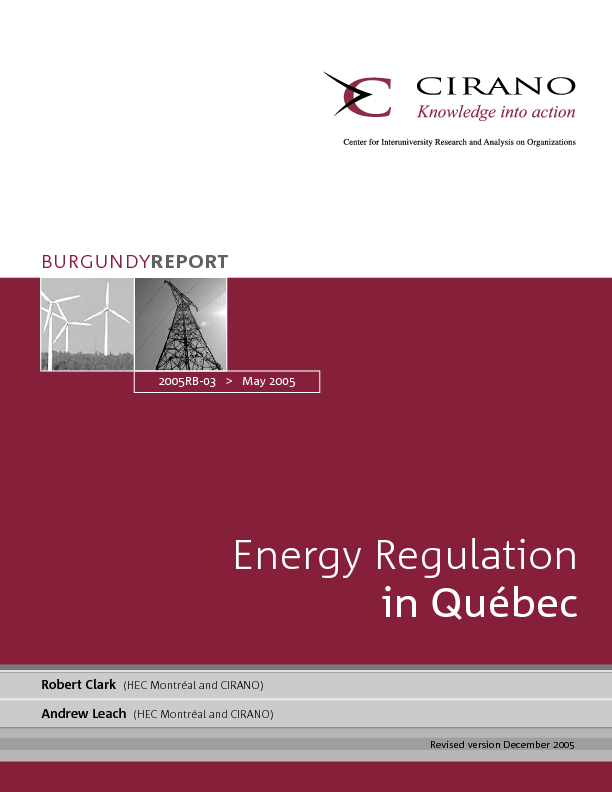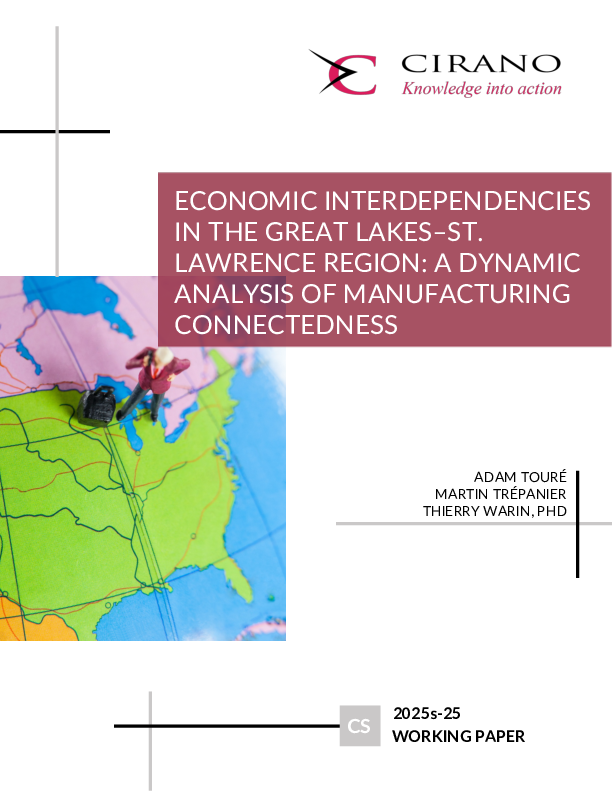Energy Regulation in Quebec
In recent years, however, certain segments of some energy markets have been liberalized, since these segments might not actually be natural monopoly situations and/or because the market may provide means to ensure that firms internalize externalities. We describe the experiences of a number of jurisdictions that have experimented with energy market liberalization and show that restructuring is feasible and may provide an improvement over the status quo if market power can be limited.
We consider the potential for restructuring in Québec's energy markets which are currently mainly regulated by the Régie de l'énergie du Québec. Québec's electricity market does not represent a typical case for the restructuring of the production side since the vast majority of its generating capacity comes from hydro projects. Over 90% of Québec's installed electrical capacity is hydro generated, making Québec the second most hydro-dominated market in the world after Norway. Furthermore, this capacity is highly concentrated on three river systems. The usual model of forced divestiture by hydrologic system is therefore likely to introduce market power in a restructured market, and may lead to greater inefficiencies than those present under regulation. In order for any market restructuring to succeed, (at least) one of two approaches must be undertaken. A system of tradable water rights could be established in parallel with a competitive power pool in order to allow divestiture of individual plants within a river system and/or Québec's markets could be opened to foreign production.
The retail segment of Québec's energy markets could potentially benefit from liberalization. The only obvious difference between Québec's energy markets and those in other jurisdictions is Québec's price-equalization policy. Lower prices could prevail if competition were introduced to the markets for electricity and natural gas, but not for all consumers. Québec's insistence on uniform prices throughout the province means that some consumers are currently paying below market price for energy. Prices for these consumers could rise if the market is restructured.




